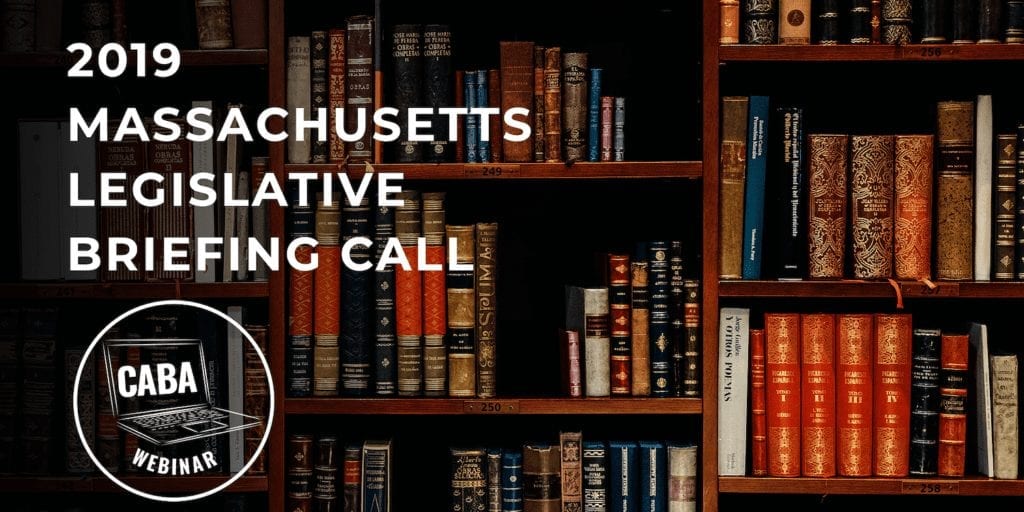Not a subscriber? Sign up here.
TRAFFIC & CLIMATE–
-Local Gridlock, Global Climate Impacts in Boston: According to a new report by transit data firm Inrix, Boston has beat out Los Angeles and become the metropolitan area with the worse commuting congestion in the nation. According to the Boston Globe, “Commuters who drove at the worst peak hour conditions would have spent 164 hours in traffic that they would have avoided under regular conditions.”
How does this relate to climate change? Congestion leads to more motor vehicle use which directly increases carbon dioxide emissions. Therefore if the state is to reduce transportation emissions, its single highest source in 2018, it will need to reduce urban vehicle congestion.
So what’s the solution? Some have proposed new taxes on car use in downtown Boston. But speaking on congestion pricing and this new report Jim Aloisi, transit advocate and former Massachusetts Secretary of Transportation said, “Congestion charges are necessary in the long run. We first need a commitment to invest in Regional Rail & transit connectivity – people need to have reliable & viable non-vehicular options.”
Another option is to implement a carbon price on transportation emissions, which would incentivize people away from driving and towards public transit use. Two bills filed on Beacon Hill establish such a carbon price and would direct hundreds of millions of dollars a year towards new public transportation investment.
BEACON HILL HAPPENINGS–
-Legislative Update: A few Beacon Hill committees get a lot of attention from climate activists and renewable energy advocates. These include the Joint Committee on Environment, Natural Resources and Agriculture (ENRA), the Joint Committee on Telecommunications, Utilities and Energy (TUE), and each chamber’s Committee on Global Warming and Climate Change. Their often powerful Chairpersons take charge of bills as they get referred to these committees, public hearings are held, and eventually, the bills are reported out of committee.
These committees play a key role at the beginning of the session, but as you enter the second year the passage of most legislation (including climate and energy bills) relies on approval of another committee: Ways & Means. Each chamber has its own Ways & Means committee, whose Chairperson writes the annual state budget but also is charged with evaluating all bills relating to the finances of the state, which is most bills.
Although insiders expect the chairpersons of ENRA and TUE to be the same as last session, the top spot on Ways & Means in both the Senate and House are wide open. Backroom political jockeying for these powerful posts has been going on for the past few months, with an announcement of who is appointed expected to come any day in the coming weeks. The Senate President and the House Speaker make the appointments. Expect whoever is selected for each spot to have significant influence over clean energy and climate legislation in 2020.
-“Peake advances climate change legislation” (Staff, Wicked Local Eastham): “State Rep. Sarah Peake (D-4th Barnstable) introduced two environmental bills, HD1954, an act promoting sustainable investment, economic security, and fiscal responsibility with respect to climate risks, and HD1963, an act to sustain natural and working lands carbon in communities, responding to climate change risks and reducing land carbon emissions.”
-Didn’t catch our breakdown of the top climate bills in Massachusetts this session? We made it into an article and added a bit more perspective on some other bills. Check it out here.
BEYOND THE BAY STATE–
-“New governors accelerate clean energy action, propelled by Democratic midterm wave” (Catherine Morehouse, UtilityDive): “The highly anticipated wave of state-level clean energy policy stemming from last fall’s midterm elections is just beginning to make its way across the country, aided by a crop of eleven new Democratic governors, seven of which flipped previously Republican seats. Many governors have already made clean energy policy a priority in their first month, laying the groundwork to continue or begin their state’s transition to a cleaner, more efficient electric grid.” Read the entire DeepDive here.
-Will Hawaii be the first state to price carbon? (Noa Dalzell, Climate XChange): Read more about the history behind climate action in Hawaii, the immense opportunity for a carbon price, and challenges facing the five bills this session here.
OFFSHORE WIND–
-“Eversource To Pay $225 Million For A Half Share In 2 Offshore Wind Projects” (Michael P. Norton, SHNS via WBUR): “Eversource has agreed to pay $225 million for a 50 percent interest in two Orsted offshore wind projects and 257 square miles encompassing two lease areas off the coasts of Massachusetts and Rhode Island. The two companies announced the deal Friday, with Eversource buying into Orsted’s 700-megawatt Revolution Wind project servicing Rhode Island and Connecticut and its 130-megawatt South Fork Wind Farms project servicing Long Island, New York.”
-“Cohasset’s Clean Energy Plan sponsored by Alternative Energy Committee”(Abigail Adams, Wicked Local Cohasset): “Though energy aggregation has been a major topic of discussion ahead of town meeting, Cohasset’s Alternative Energy Committee has other proposals to put before voters this spring. In addition to an energy aggregation article, the committee has sponsored another warrant article for Town Meeting aimed at improving the town’s energy consumption in more ways than one.”
INSIDE THE BELTWAY–
-“Ocasio-Cortez and Markey unveil Green New Deal resolution” (Devan Cole & Sunlen Serfaty, CNN): “Democratic Rep. Alexandria Ocasio-Cortez of New York and Democratic Sen. Ed Markey of Massachusetts unveiled their “Green New Deal” resolution Thursday, which outlines the definition of the massive piece of legislation the two hope will tackle a litany of issues related to the US’ role in global climate change… The legislation has become a key policy initiative for Ocasio-Cortez, the progressive New Yorker who, shortly after being elected in November, joined the Sunrise Movement to protest over the climate change issue in the office of then-House Minority Leader Nancy Pelosi. She later paired up with Markey, who represents Massachusetts, to begin working on the legislation.”
-“Massachusetts Gov. Charlie Baker urges Congress to address climate change” (Shira Schoenberg, MassLive): “Massachusetts Gov. Charlie Baker testified about climate change before a congressional committee in Washington on Wednesday, calling on Congress to create federal emissions targets, fund research on climate change and consider climate change resilience in federal infrastructure funding. In response to a question about whether policymakers can do anything about climate change, Baker compared climate change to acid rain and the ozone layer, other environmental challenges that public policies have been able to address.”
-“Republican lawmakers face pressure to propose ‘Green New Deal’ alternative” (Josh Siegel, Washington Examiner): “Republicans who want to combat climate change say their party should avoid the temptation of rejecting the progressive “Green New Deal” without proposing an alternative. “If the Green New Deal goes down in flames and gets totally discredited, the climate issue is still out there,” said Josiah Neeley, energy policy director at the R Street Institute. “You still have to come up with ways to deal with it.”… But because it contains no actual policies to get there, leaving that work for later, Republicans should fill in the gap with their own prescriptions, party leaders say.”
-“How Much Is The Government Spending On Climate Change? We Don’t Know, And Neither Do They” (Maggie Koerth-Baker: FiveThirtyEight): “America’s problems with solving our climate crisis predate President Trump and go deeper than petty snark. Yes, it’s a problem when the president of the United States sees a vicious cold snap and uses it as an opportunity to mock climate change. (Especially when the cold snap is itself linked to climate change.) But it’s also a problem when the government doesn’t keep good track of how much it’s spending to fight climate change. That could be said about the Trump administration — and several others before it.”
CARBON PRICING–
-“Sen. Mike Barrett pushing for carbon pricing legislation”(Staff, Wicked Local Lexington): “State Sen. Mike Barrett, who in 2013 proposed Massachusetts’ first carbon pricing legislation, is freshening up the idea for the two-year session of the General Court that began last month. Barrett’s legislation gives a governor the choice of “putting a price on carbon” not only by means of cap and trade but also via revenue-neutral fees, revenue-positive taxes, or some combination of all three. At the same time, the bill sets deadlines by which the chief executive must act — Dec. 31, 2021, for example, for transportation.”
-[Western MA] “Area lawmakers sign on to carbon pricing bill” (Greta Jochem, Daily Hampshire Gazette): “More than 100 legislators, including many from western Massachusetts, are co-sponsoring a bill that would put a price on carbon… Many area lawmakers are in support; co-sponsors include Reps. Lindsay Sabadosa, D-Northampton, Dan Carey, D-Easthampton, Mindy Domb, D-Amherst, Natalie M. Blais, D-Sunderland, and Sen. Jo Comerford, D-Northampton… Benson introduced similar legislation last session, and the bill has nearly double the number of co-sponsors this session.”
ALL POLICY IS LOCAL–
-“Officials seek more protections for city wetlands to counter effects of climate change”(Milton J. Valencia, Boston Globe): “Now, a movement is afoot in Boston to enact a local Wetlands Protection Act, part of the city’s overall efforts to combat the effects of climate change. The act would give the Boston Conservation Commission more power to protect wetlands in reviewing proposed development, such as by building with green infrastructure, and would allow the commission to designate sites as “Areas of Critical Environmental Concern,” which would warrant stronger protections.”
-“Agency Head Voices Opposition To Proposed Weymouth Compressor Station” (Barbara Moran, WBUR): “A Massachusetts organization whose health impact report paved the way for the Baker administration to issue an air quality permit for a controversial proposed natural gas compressor station says it opposes the project on other grounds. Metropolitan Area Planning Council (MAPC) Executive Director Marc Draisen told WBUR that his agency does not support construction of the compressor station in North Weymouth, citing concerns about climate resilience and public safety.”
CAMPAIGN 2020–
-“Bloomberg’s climate pragmatism could turn off 2020 Democrats” (Steve Peoples, the Associated Press): “This should be Michael Bloomberg’s moment. No presidential prospect has done more to confront climate change than the billionaire Democrat, who measures his progress in the metric tons of carbon emissions he’s helped eliminate. But as climate change surges to forefront of the 2020 Democratic primary, no issue better illustrates Bloomberg’s political challenge. A onetime Republican, the pragmatic former New York mayor is struggling to find his place among the increasingly bold ambitions of his adopted political party.”
THE WORD ON SOLAR–
-“US solar workforce shrinks for second straight year as Trump tariffs bite”(Tom DiChristopher, CNBC): “American solar power workforce shrank for a second consecutive year in 2018, as U.S. tariffs prompted developers to delay projects and policy shifts in top solar states slowed renewable energy growth. The U.S. solar industry shed nearly 8,000 jobs last year, according to an annual survey from the Solar Foundation, a nonprofit that advocates for solar power. The 3.2-percent drop in employment puts the industry’s total headcount at roughly 242,000.”
GLOBAL CLIMATE CHANGE–
-We Won’t Remain a Livable Planet Without Economic Circularity (Maria Virginia Olano, Climate XChange): It makes sense in an efficient capitalist society, that we minimize waste and reduce resource extraction to maximize returns – or so you’d think, in theory. In reality, our world is only 9% circular. This alarming statistic is the main finding of the Circularity Gap Report, released last month at Davos by Circle Economy… Put simply, a linear economy no longer makes sense in a planet with rapid population growth and urbanization, and on the verge of natural systems collapse. We need, therefore, to meaningfully think about and examine what a circular economy looks like, and how we can design and reuse materials to be economically successful and yet not continue to destroy the planet along the way.
OPINIONS–
-“Will Ocasio-Cortez’s ‘Green New Deal’ even get a vote?” by Susan Ferrechio via Washington Examiner.
-“What Washington gives up by not leading on climate change” by Erin Dunne via Washington Examiner.
-“Four climate change investments hiding in plain sight” by Erik Kobayashi-Solomon via Forbes.
-“What tackling climate change means, illustrated” by Amy Harder via Axios.
– – –
FOR MORE CONTENT from us subscribe to the Climate XChange Newsletter(Fridays, bi-weekly) or the Climate Action Business Association Newsletter (Fridays).










